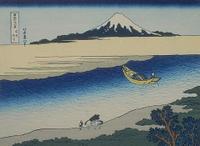
by David McCullough
I picked this up even though (maybe because) I've always found military history to be difficult to engage with. I've never been able to relate enough to make the story really mean anything to me. It can't all be blamed on the writing skills of historians, either. Even Victor Hugo couldn't keep me turning pages readily -- that 50-page chapter in Les Miserables on the battle of Waterloo? I skimmed through it (to the end where two minor characters' stories intersect).
But I figure as time goes by I've got the advantage of perspective and experience. Not of actual warfare, obviously, but experience of enough different people and situations that I should be able to stretch that empathy a little farther.
So I decided to give it a go, and I'm pleased to report that this was a very readable military history that managed to maintain a level of drama even for one not accustomed to appreciating the details of troop movements and tactics. It certainly doesn't hurt to have familiar characters and locations to read about. And 1776 focuses on the year that could easily have ended the revolution -- despite early successes in the siege of Boston, our boys faced defeat after defeat in New York. (But it feels so right to root for the underdog…) I was definitely turning pages -- as things went from bad to worse, I thought the book would end before they turned things around in New Jersey.
The other lovely thing about reading this book was getting a more fleshed out picture of an icon (George Washington). People are always more interesting than symbols -- and seeing Washington at what was arguably his shakiest allows one to better appreciate just how skilled he became. I especially love having a ton of details -- then I can forget my usual percentage and still kind of know something.
There were some details that managed to creep me out, though, in the description of George III. I found it making me think of a modern George…
"He remained a man of simple tastes and few pretensions….Socially awkward at Court occasions--many found him disappointingly dull--he preferred puttering about his farms at Windsor dressed in farmer's clothes….he could be notably willful and often shortsighted, but he was sincerely patriotic and everlastingly duty-bound. 'George, be a King,' his mother had told him. As the crisis in America grew worse, and the opposition in Parliament more strident, he saw clearly that he must play the part of the patriot-king. He had never been a soldier…But with absolute certainty he knew what must be done…"
…I don't know, maybe I'm pushing it. You be the judge….
